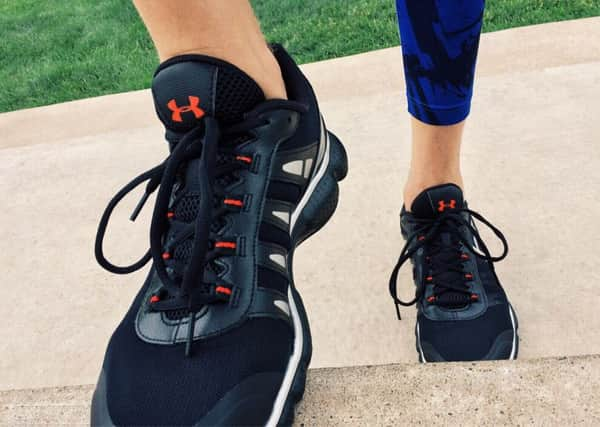Lack of exercise putting Scots at risk in later life


Elderly people were the least likely to meet the national guidelines of two sessions per week of muscle-strengthening exercise, such as swimming, golf or keep fit activity.
Only 19 per cent of men and 12 per cent of women over 65-years-old met the guidelines, compared to 31 per cent of men and 24 per cent of women over 19-years-old.
Advertisement
Hide AdAdvertisement
Hide AdExperts warned of the physical activity gap could have “important consequences” for public health as maintaining muscle strength can prevent type 2 diabetes and osteoporosis, and reduce the risk of early death and heart disease.
Lead researcher Tessa Strain, from Edinburgh University, said: “There is a gap in physical activity policy.
“Despite the known benefits muscle strengthening and balance and coordination are Scotland’s forgotten guidelines.
“We would like to see more effort encouraging certain activities especially among young women and older age groups.
“Failure to do so could have important consequences for a country such as Scotland, with its ageing demographic.”
Health campaigners urged older people to take steps to protect themselves from falls and frailty in old age.
Sarah Leyland, osteoporosis nurse consultant at the National Osteoporosis Society, said: “Exercises which help develop muscle, balance and coordination are very important to people with osteoporosis and a high risk of breaking bones, especially in later life when hip fractures tend to occur.
“They play a crucial role in reducing the risk of falls which can lead to debilitating fractures.
Advertisement
Hide AdAdvertisement
Hide Ad“Although weight bearing exercise helps to keep bones strong, there is also good evidence that keeping active and doing specific exercises for muscle strength and balance will reduce falls and fractures.”
Using data from more than 14,000 Scottish adults reported in the nation’s annual health surveys, the researchers found working out in the gym was most popular among men, while swimming was preferred by women.
Retired men preferred golf, while older women were more likely to take part in aerobics classses.
Activities such as a gym workout, dancing, and golf improve balance and coordination and reduce the risk of falls and immobility among older adults.
Participation fell signifcantly as people got older. Working out at the gym and jogging dipped after 35, while swimming levels fell after 65 for men and 55 for women.
Golf was the only sport to increase among older men.